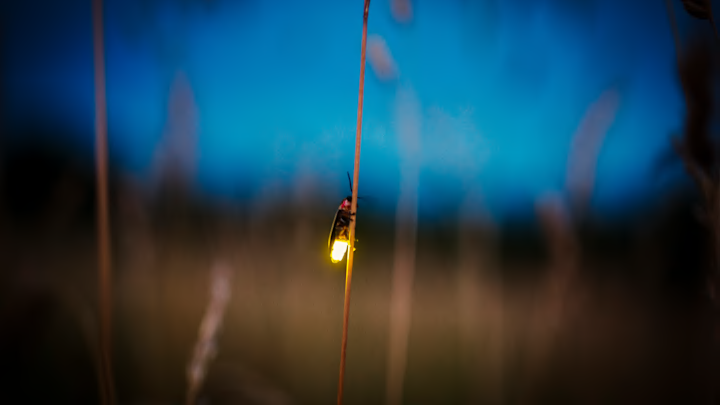Many of our childhood experiences are exaggerated in retrospect. If you remember seeing more fireflies on summer nights as a kid than you do as an adult, you may assume your unreliable memory is to blame. But that isn't the case; according to Farmers' Almanac, fireflies really were more common decades ago than they are today, and their numbers are continuing to decline.
Fireflies are victims of the broader insect apocalypse impacting ecosystems across the globe. Insects like flies, moths, bees, and beetles are also affected. This is why you don't find as many splattering car windshields as often as you once did. But while you may not miss (or remember) the bug guts on your car, summer nights illuminated by fireflies are more likely to inspire nostalgia.
Anecdotal evidence has pointed to dwindling firefly populations for years, and recent data backs up these observations. A 2021 report from the Xerces Society, the ABQ BioPark, and the IUCN Firefly Specialist Group found that 14 of 128 Lampyridae species studied are at risk of extinction.
According to the non-profit Firefly Conservation & Research, light pollution and habitat loss are the biggest threats to the insects. Fireflies thrive in warm environments near bodies of water, which happen to be hotspots for human development and activity. Experts also suspect that artificial light is interfering with the bioluminescence fireflies use to communicate and find mates.
They may be small, but insects—including fireflies—play a vital role in their environments. Individual action alone won't be enough to reverse the insect apocalypse, but there are steps you can take to help the fireflies in your backyard.
Instead of clearing old logs from your property, allow them to rot. Decomposing wood can act as homes for young fireflies in their first one to two years of life. Turning off your lights at night and adding a water feature to your lawn will also turn your property into a more hospitable environment for the creatures. Lastly, plant native flora in your yard without using pesticides. This will support fireflies as well as other insects who may be struggling in your area.
